Migrating Flavours
Food culture tells the story of migration, where each dish is a journey of movement, adaptation, and connection.
This event invites you to explore how migrants carry and reshape their heritage, one meal at a time.
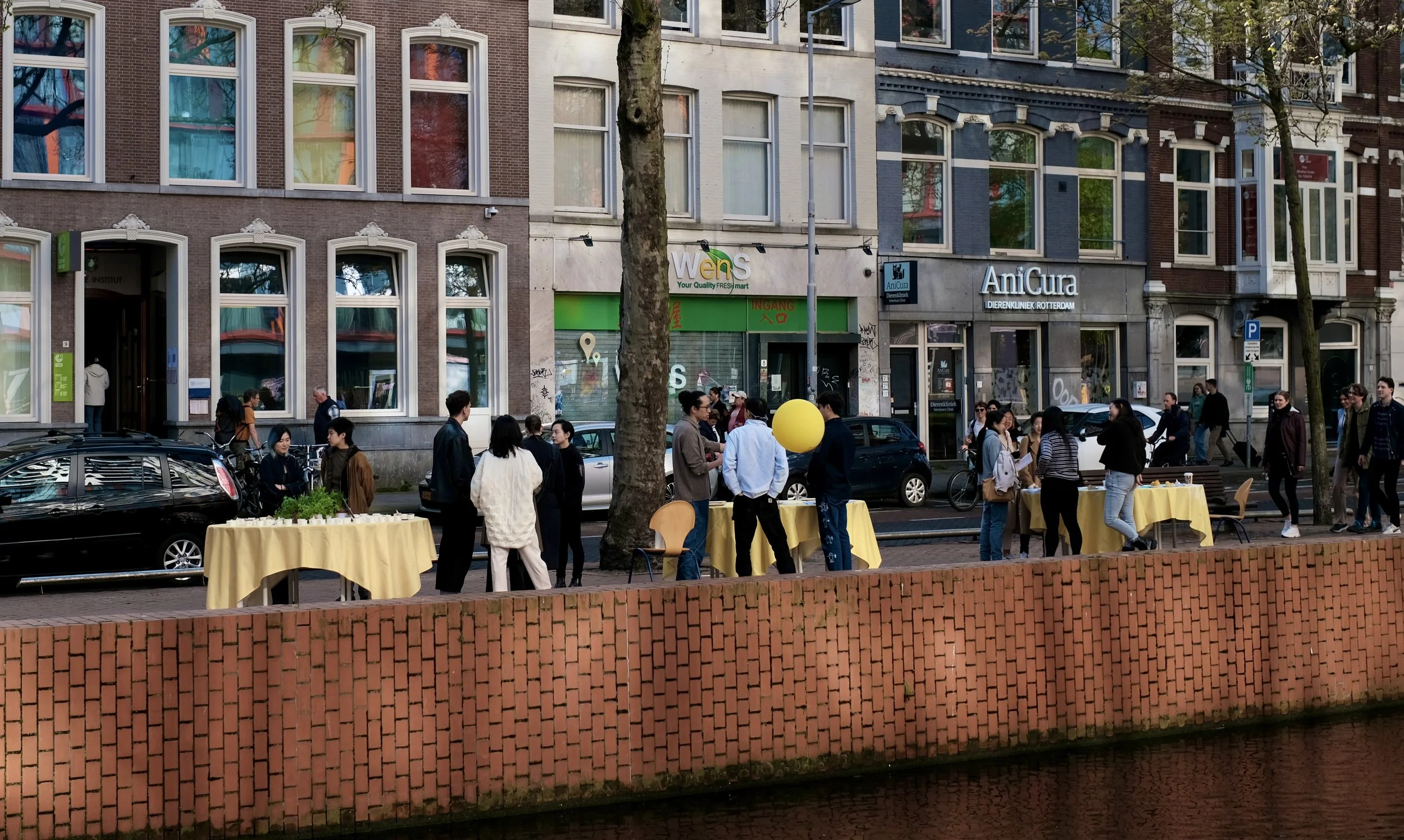
Spring Onion Atelier is proud to present a series of three interactive workshops under the theme Migrating Flavours, as part of Next Stop, Chinatown. This community-building initiative is part of the Rotterdam Chinatown transformation project and explores the intersection of urban design and community development.
Designed as roundtable discussions, the workshops aim to foster meaningful engagement and encourage active public participation. They offer a unique opportunity to explore the complex topic of global migration through the relatable and evocative lens of food and its cultural journeys.
Three round table installations illustrate how food migrates, integrates, and connects to memory.
In China, the round table is central to almost every shared meal. It symbolizes connection, equality, and the spirit of sharing by bringing people together through open, non-hierarchical conversations. Spring Onion Atelier adopts the round table format to highlight the vital role food plays in building and sustaining community ties.
The first Chinese immigrants arrived in Rotterdam’s Katendrecht neighborhood as seamen in the early 20th century, at a time when Chinese migration to Europe was still rare. By the 1980s, Rotterdam’s Chinatown had gradually shifted to West-Kruiskade, where it evolved into a vibrant, multicultural district. Today, Chinese restaurants, shops, and businesses coexist alongside those from Surinamese, Caribbean, Middle Eastern, and African communities.
Our one-day workshop used food as a catalyst to highlight the rich cultural diversity that exists within the city. We embrace and celebrate these unique traditions, fostering an environment where they can flourish and be appreciated by all.
Round table ONE: Ingredients Odyssey
The global movement of people has brought more than just individuals across borders—it has also carried plants, animals, and food traditions from their places of origin. In our research, we explored the migration stories of eight key ingredients: tomato, potato, coffee, cinnamon, lemon, onion, corn, and chili pepper. Based on these stories, we created a series of story cards that trace how each ingredient traveled across continents.
This exchange of ingredients and food culture has added richness not only to what we eat but also to the cultural life of cities. We invite visitors to join us in mapping these global food journeys and exploring how trade and colonialism have shaped both the movement of ingredients and the lives of migrants. Through this workshop, we celebrate the deep connections between cultures through the shared language of food.
Round table TWO: Kitchen Remix
As ingredients travel, they find new homes in unfamiliar kitchens. Communities adapt them, blending old tastes with new traditions. In this remix, familiar dishes are reborn, just as immigrants reshape and enrich the cultures they join.
Yet, differences linger. Spices, scents, and rituals continue to tell stories of origin, even as they evolve.
We present nine pairs of look-alike dishes from around the world: like Fajitas and Shredded Pork with Green Pepper, Kebab and Satay. Though they share ingredients, their flavors and techniques speak of different journeys. These culinary echoes invite us to reflect on migration, identity, and the beauty of cultural exchange.
Round table THREE: Roots and Herbs
The scent of herbs carries our memories, evoking specific moments. A week prior to the workshop, we initiated an open call for stories. Immigrants were invited to share nostalgic stories and evolving eating habits tied to spices from their time abroad. From these tales, representative herbs from various regions were selected. On the event day, storytellers and attendees were invited to share and exchange their stories while taking home a cup of these symbolic herbs.
Through an herb exchange event, we aim to highlight the vast array of herbs and spices utilized in various cultures, fostering an environment that promotes inclusivity and acceptance of diversity. This event provides participants with a wonderful opportunity to delve into the cultural and historical significance of different herbs, allowing them to gain a deeper understanding and appreciation of the unique contributions that diverse cultures bring to our community. By celebrating and sharing these diverse flavours, we hope to cultivate a more inclusive and harmonious atmosphere for all.
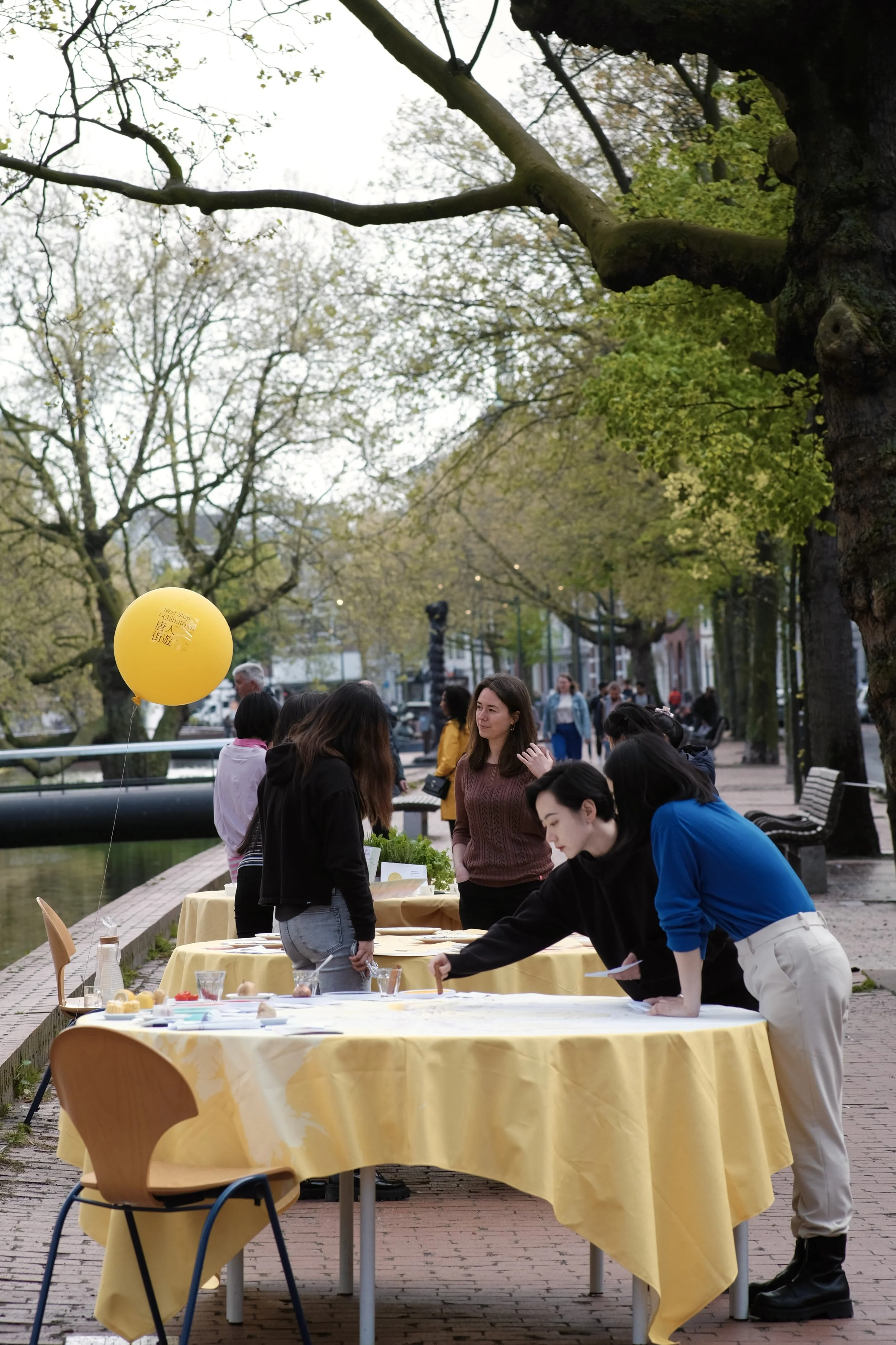
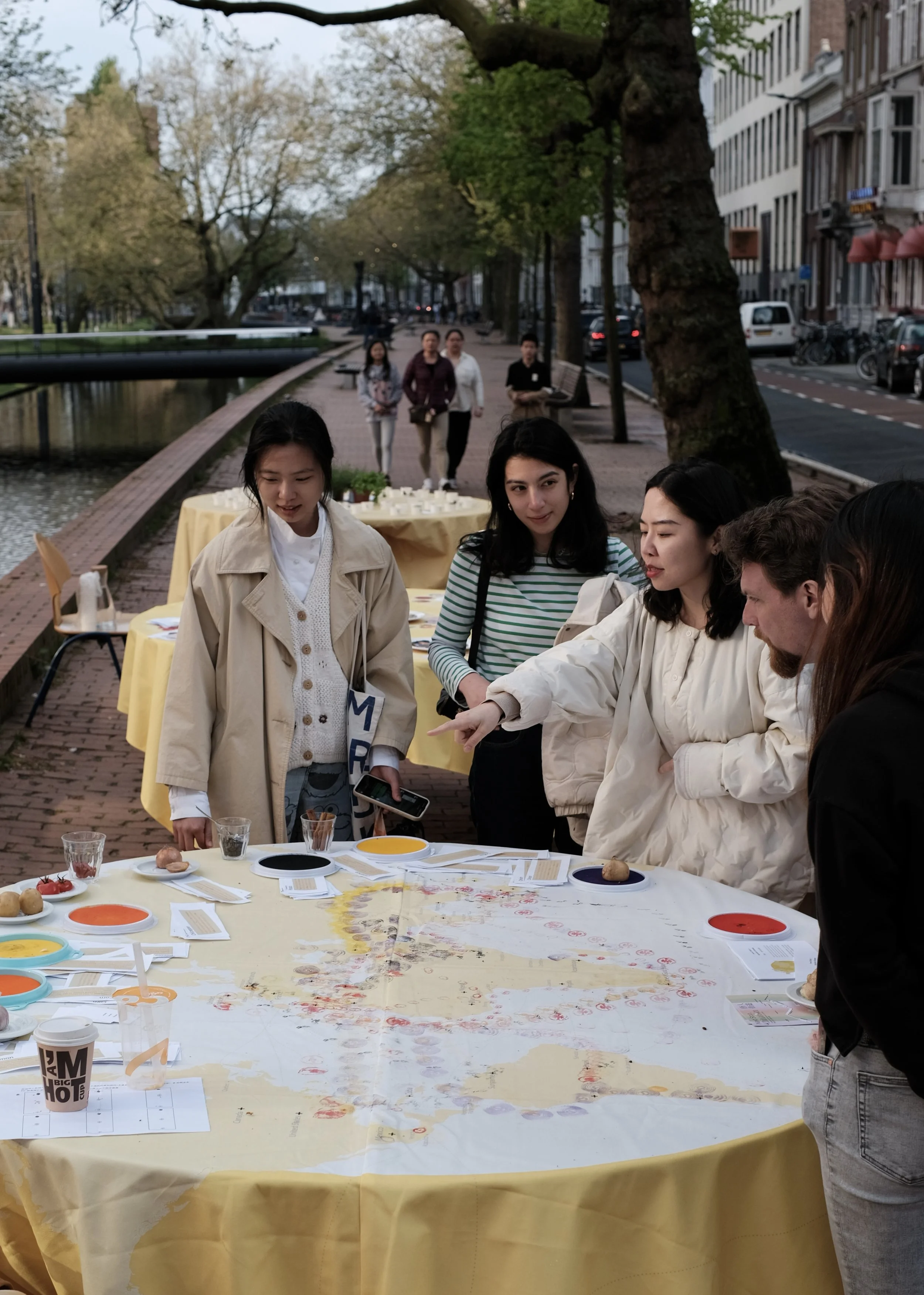

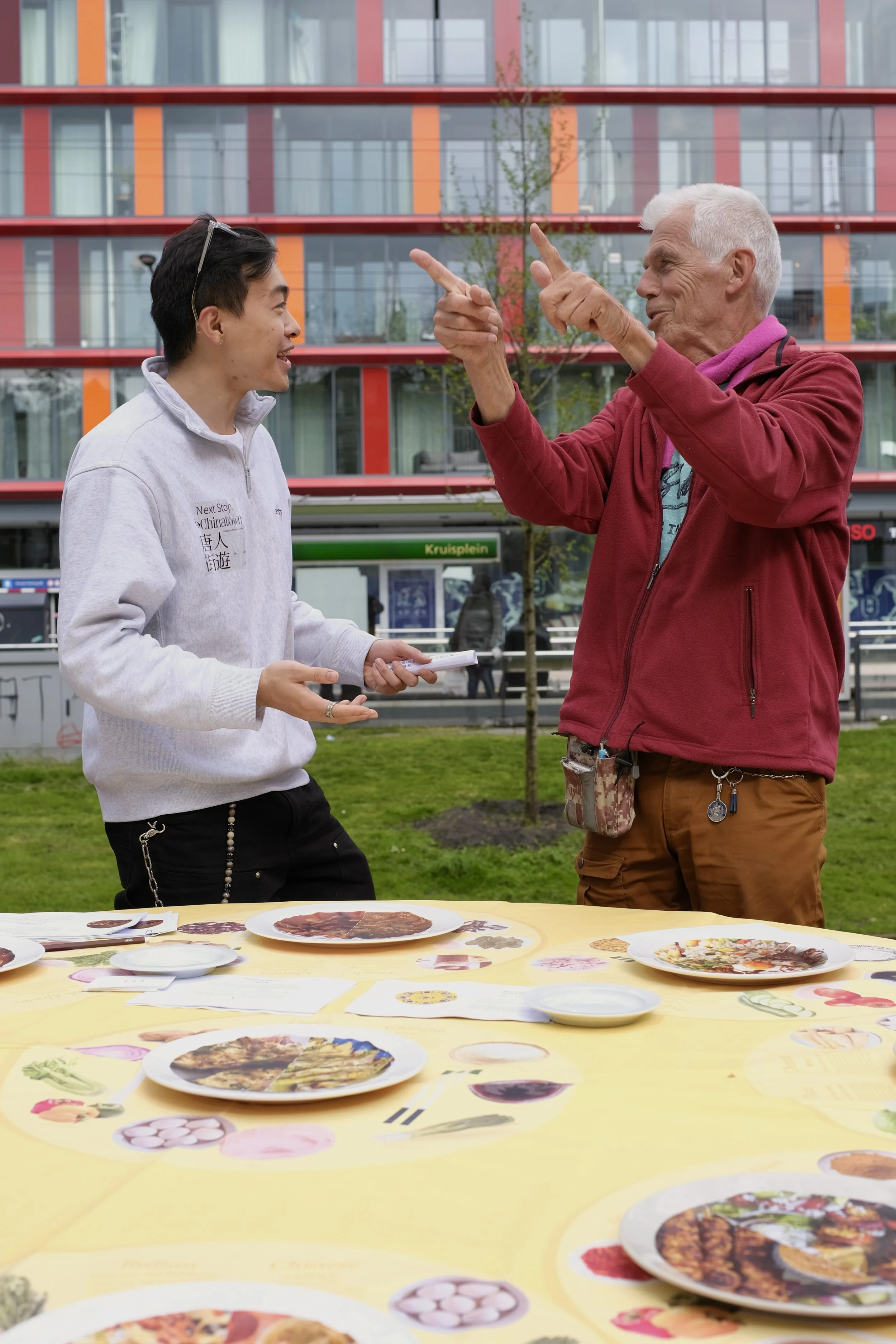
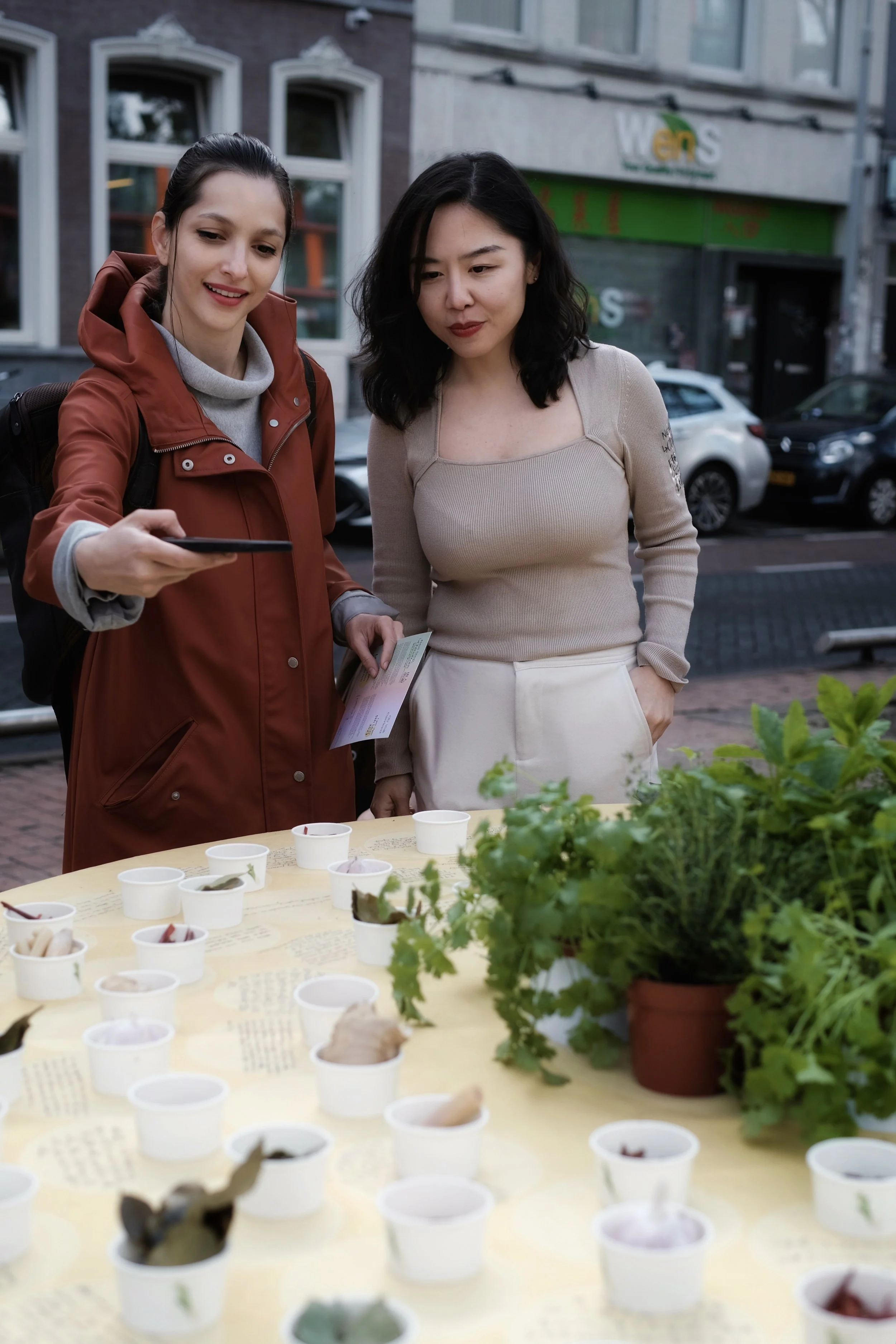
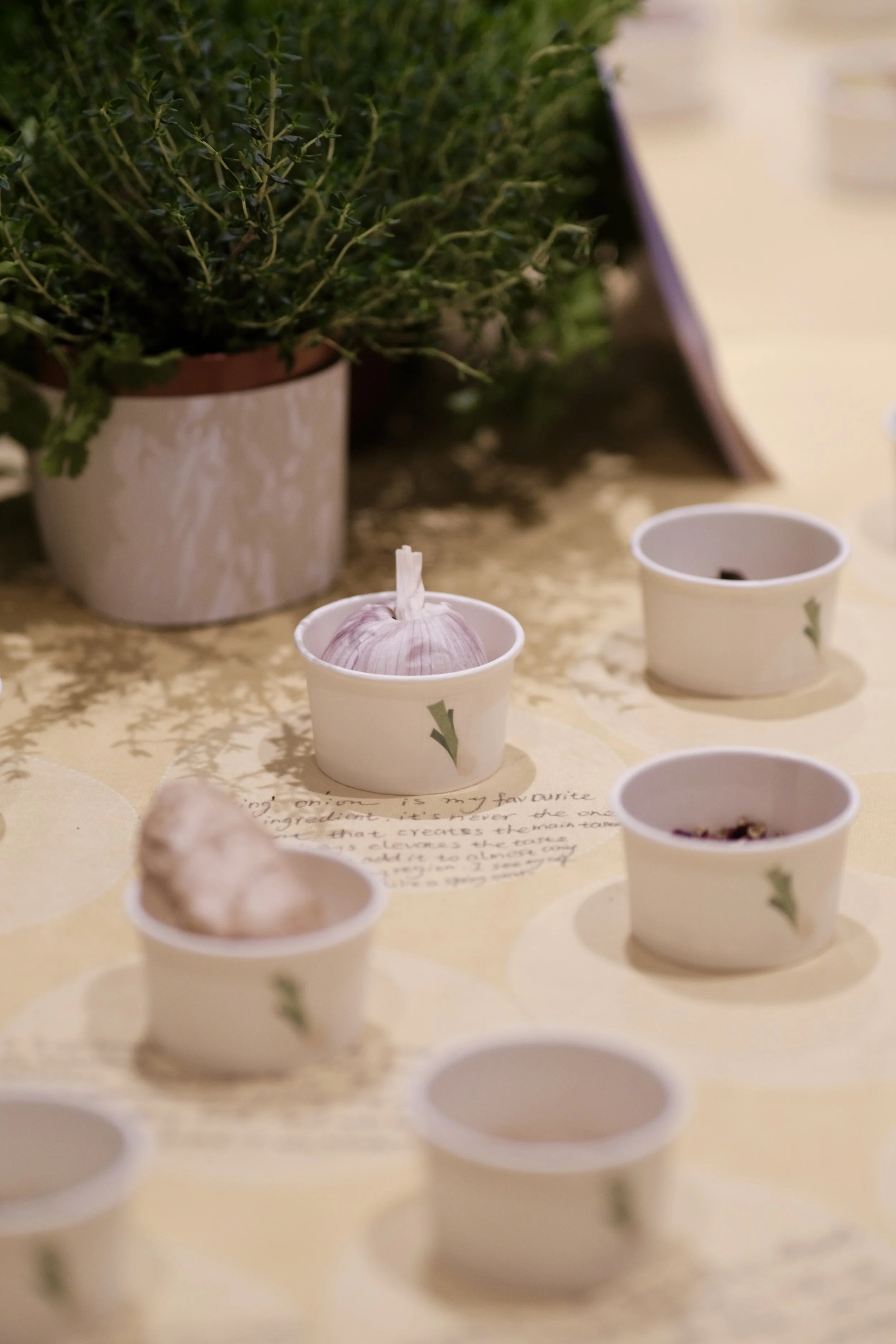
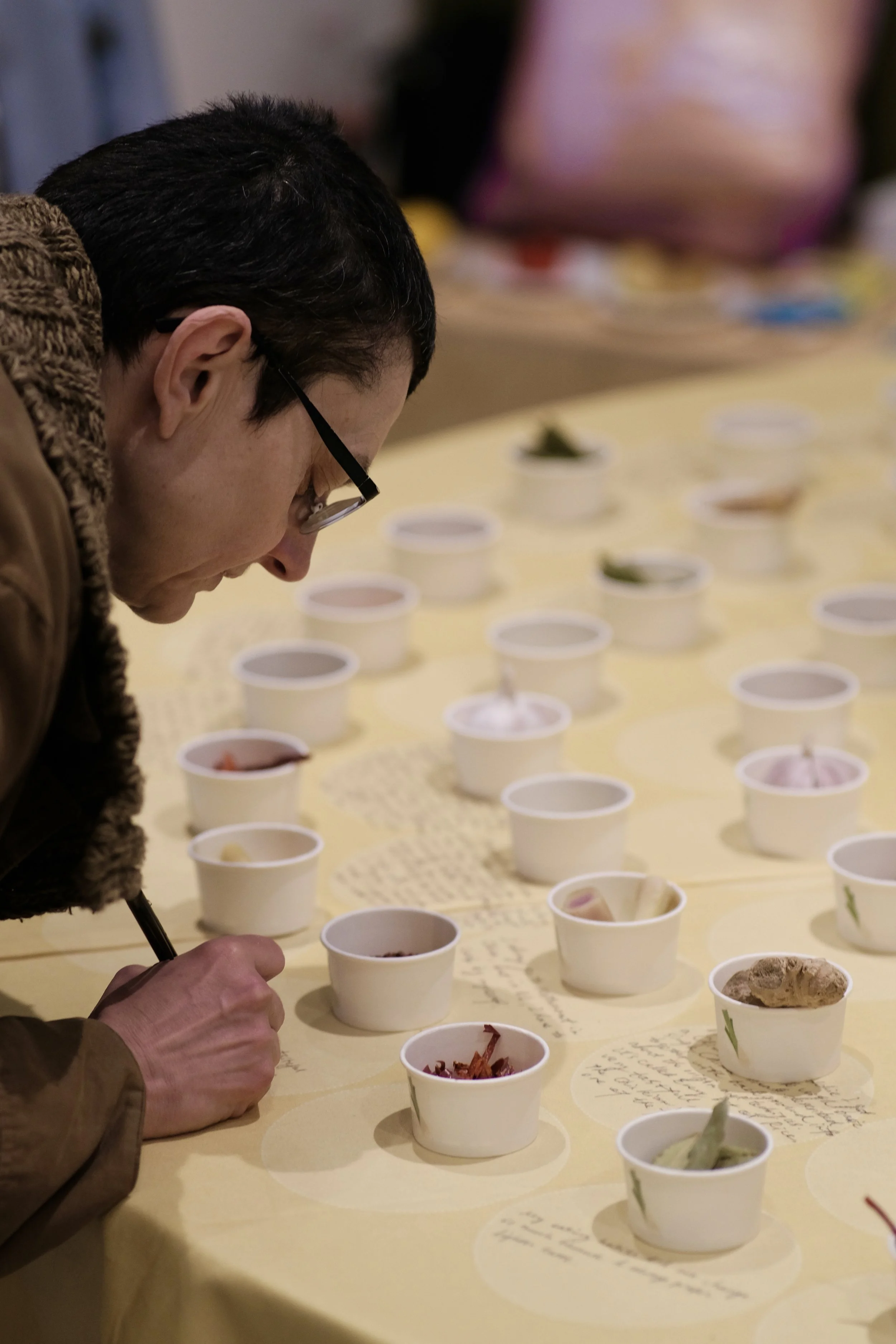
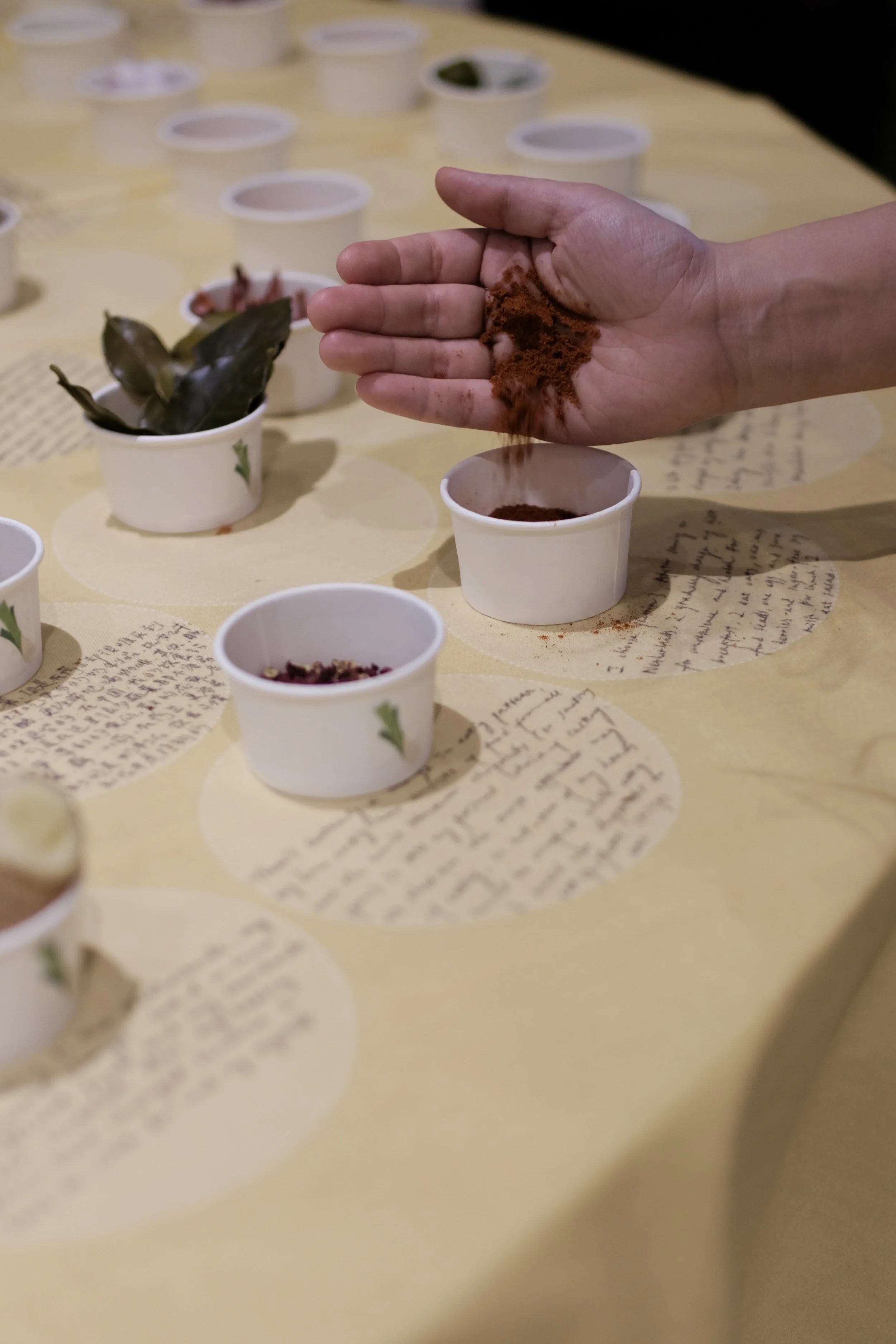
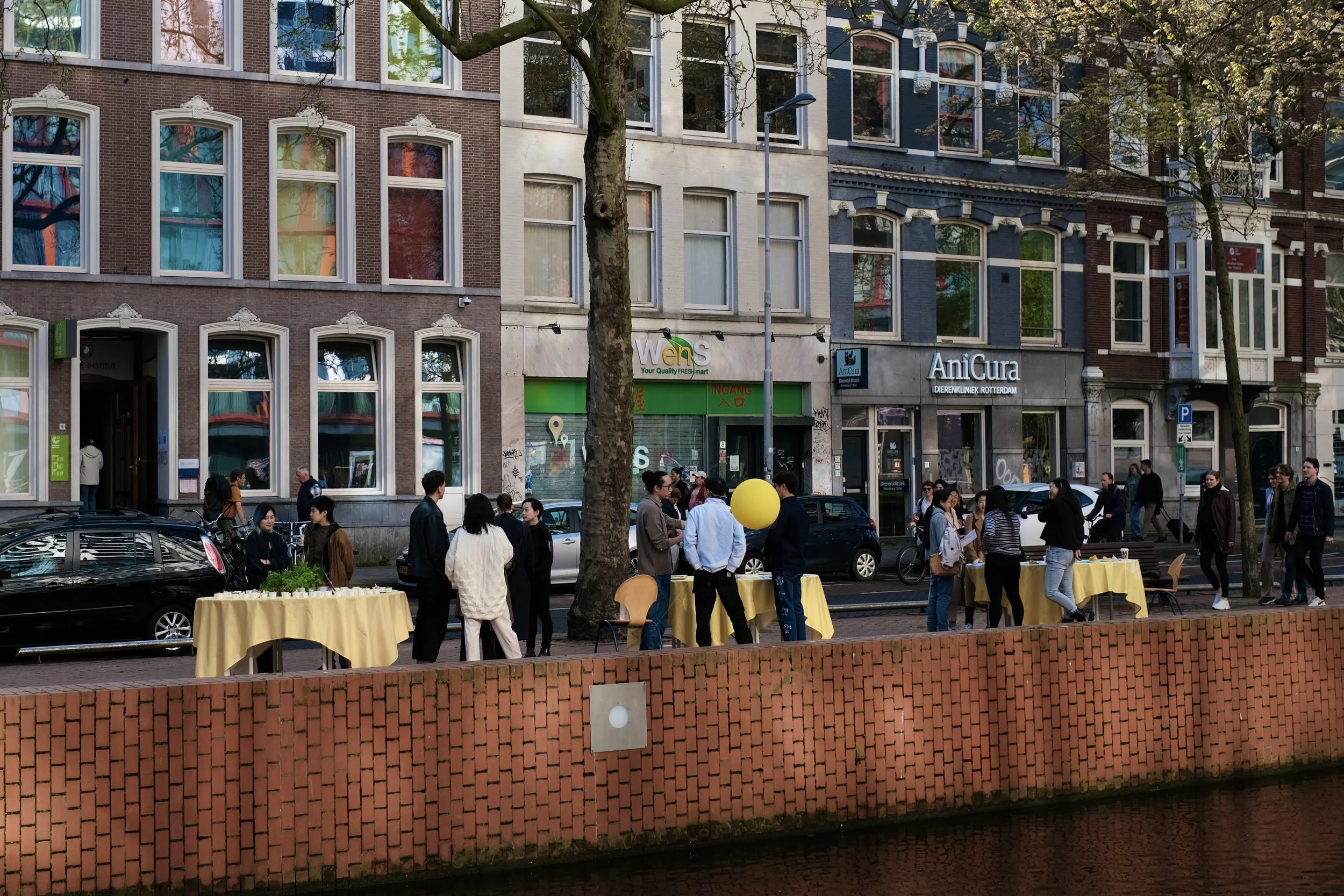
Facts & Credits
Location: Westersingel, Rotterdam
Program & Size: workshop, 3 sets of 1.8 diameter round table as urban installation
Time: 5th May 2023
Curator and designer: spring onion atelier
Design Team: Yang Zhang, Jammy Zhu, Chun Hoi Hui, Min Cui
Next Stop, Chinatown Initiative: Ziqi Xu
Key Partners: Goethe Institute, Rotterdam Municipality
Photographer: Ye Wang





